Model Project Development Agreement Page 56
ADVERTISEMENT
engineering and construction contractor acting in accordance with good standards of
prudence applicable to the international construction industry and taking into account
the specific conditions, including site geological conditions, in existence in Nepal from
time to time;
16.2.5
any failure or delay by any Contractor which results in the failure or inability of the
Company to perform its obligations under this Agreement where the cause of such
failure by the Contractor would not constitute a Force Majeure Event pursuant to this
Agreement;
16.2.6
late performance by the Company or any Contractor caused by the failure of the
Company or such Contractor to engage qualified subcontractors and suppliers or to hire
an adequate number of personnel or labour;
16.2.7
unavailability, late delivery or changes in the cost of equipment, machinery, works or
materials, spare parts or fuel or consumables, unless such is the direct effect of a Force
Majeure Event;
16.2.8
fluctuations or reductions in demand for the electrical energy generated by the Project,
including under the Export Power Purchase Agreement;
16.2.9
inability to obtain or maintain adequate funding;
16.2.10 mechanical or electrical breakdown or failure of equipment, machinery or works owned
or operated by either Party due to the manner in which the equipment, machinery or
works have been operated, transported or maintained (including where such
transportation, operation or maintenance was not in accordance with Good Electricity
Industry Practices);
16.2.11 any action or inaction of any authority, administrative or regulatory body, tax authority
or any other body having a similar role or function in the importing country;
16.2.12 delays resulting from reasonably foreseeable unfavourable weather conditions or other
similar reasonably foreseeable adverse conditions; or
16.2.13
non-performance resulting from normal wear and tear or random flaws in materials and
equipment or breakdowns in equipment.
Obligation to notify
16.3
16.3.1
If an Affected Party reasonably considers that a circumstance has arisen which
constitutes or is likely to constitute or result in a Force Majeure Event in relation to it,
the Affected Party shall, as soon as is reasonably possible, and in any case no later than
seven (7) Days following the occurrence of a Force Majeure Event, give the other Party
notice setting out the following in reasonable detail:
(A)
a description of the relevant Force Majeure Event;
(B)
the rights or obligations of the Affected Party under this Agreement
which have been or shall be, or are likely to be, affected by such Force
Majeure Event; and
(C)
an estimate of the expected duration of such Force Majeure Event.
16.3.2
Failure by the Affected Party to give notice of a Force Majeure Event to the other Party
within the seven (7) Day period required by Section 16.3.1shall not prevent the Affected
Party from giving such notice at a later time, provided, however, that in such case, the
Affected Party shall not be excused pursuant to this Section16 for any failure or delay in
complying with its obligations under or pursuant to this Agreement until the notice has
been given. If such notice is given within the seven (7) Day period, the Affected Party
50
ADVERTISEMENT
0 votes
Related Articles
Related forms
Related Categories
Parent category: Legal
 1
1 2
2 3
3 4
4 5
5 6
6 7
7 8
8 9
9 10
10 11
11 12
12 13
13 14
14 15
15 16
16 17
17 18
18 19
19 20
20 21
21 22
22 23
23 24
24 25
25 26
26 27
27 28
28 29
29 30
30 31
31 32
32 33
33 34
34 35
35 36
36 37
37 38
38 39
39 40
40 41
41 42
42 43
43 44
44 45
45 46
46 47
47 48
48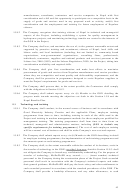 49
49 50
50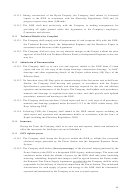 51
51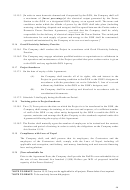 52
52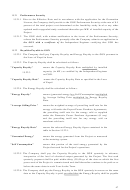 53
53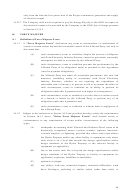 54
54 55
55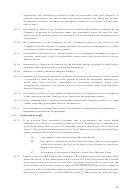 56
56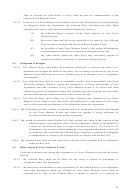 57
57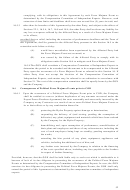 58
58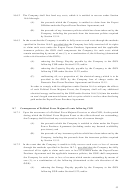 59
59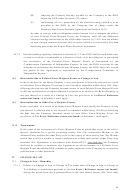 60
60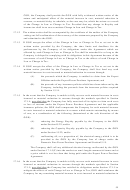 61
61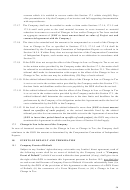 62
62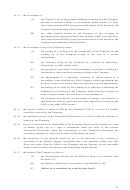 63
63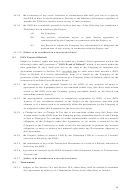 64
64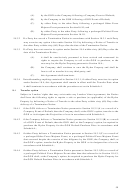 65
65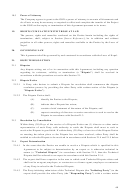 66
66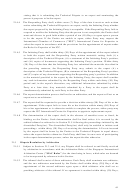 67
67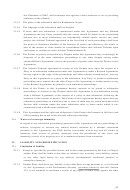 68
68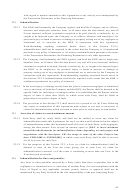 69
69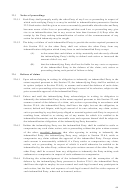 70
70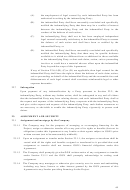 71
71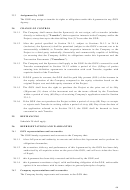 72
72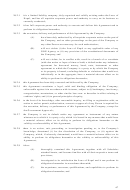 73
73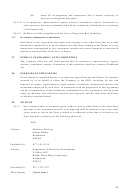 74
74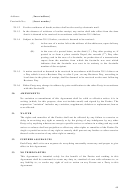 75
75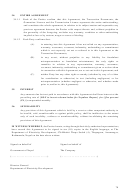 76
76 77
77 78
78 79
79 80
80 81
81 82
82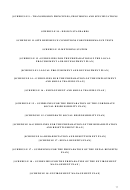 83
83 84
84 85
85 86
86 87
87 88
88








